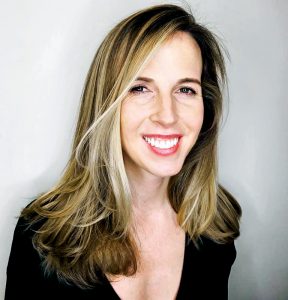The Power of Mentoring

Amy Emerick Clerkin ’03
But when I got there—after graduating a semester early—I’d be lying if I said I knew specifically what I wanted to do with my degree in government and law.
Being “captivated by politics” is a pretty wide scope in a town full of organizations specializing in political strategy of niche issues, not to mention a bureaucracy and legislature full of offices serving different functions and political leanings. It was a lot to take in. But I quickly realized I had an important tool in my job-seeking belt: a tightly knit alumni network, which I tapped into as soon as I arrived in D.C.
Several of my fellow Leopards were keen to help, offering the good advice that starting in an entry-level role on Capitol Hill was a solid place to begin a career. They gave me pointers on how to get one of those competitive jobs, and some even crossed the political aisle to contact and recommend me to employers of the other party.
Drawing on their years of experience in D.C., they posed questions that helped refine my search, understand my own politics, and identify the type of employer with whom I wanted to work. Would I have figured these things out on my own? Probably, but it would have taken time, and that’s something in short supply when you’re balancing job interviews, an internship in a Congressional office, and waiting tables at night.
My early mentors—including Peter Holran ’88, Wendy Sussman ’93, and Michael Higdon ’99 —are people whom I grew to respect and admire because of valuable insights they shared about navigating the D.C. job market and the town’s culture. No one has all the answers, but seeking guidance from people who have traveled a similar path can give new perspectives, ideas, and connections to help forge onward.
The good path that my early mentors helped set for me has led to where I am now: serving as chief of staff to U.S. Rep. Raúl M. Grijalva, D-Ariz., a position I’ve held since 2009. It came as no surprise to me that when I assumed this role young people in my former shoes started reaching out. Some of them are fellow Lafayette grads, others share a mutual connection, and even more are total strangers. I accept as many requests as I can for coffees or meetings with these recent grads and young professionals, regardless of the school they’ve come from or strength of their connection to me. Like all of us, my schedule is tight, but I try never to be so busy that I can’t spare a few moments to look over a résumé and offer feedback.
Being available to provide professional or personal guidance, or to be a sounding board for young professionals, can be incredibly rewarding, especially when the mentee becomes a mentor. Mentoring is also a way to gain insight into how newer workers view the job market, their relationships with employers, their expectations, and things they desire from a job, an employer, and their lives.
In the end, mentoring isn’t an activity that has to take up a lot of time. It’s an activity you can weave into the way you do business and build relationships. Mentoring is, essentially, networking.
If you haven’t already, I would encourage you to reach out to Lafayette’s alumni services and offer yourself as a point of contact to students interested in your industry. And when someone does finally reach out to ask for a coffee or phone call, say “yes.”